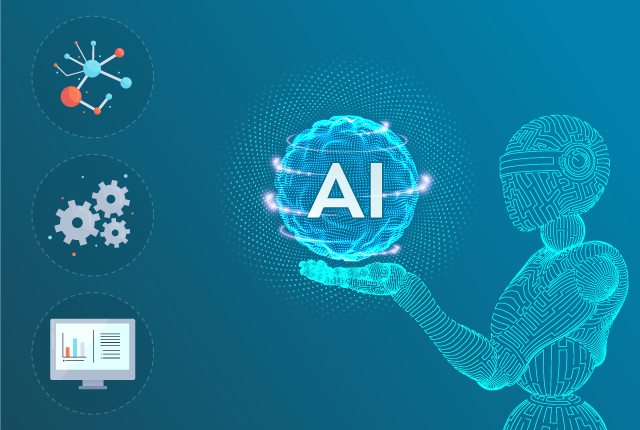
Generative AI and Machine Learning serve different purposes in AI. Our comparative analysis highlights these differences:
| Aspect | Generative AI | Machine Learning |
|---|---|---|
|
Nature of Technology
|
A branch of AI focused on creating new, original content such as images, text, or other types of data.
|
A broader concept in AI includes various techniques for enabling computers to learn from data.
|
|
Primary Function
|
Designed to generate data instances that closely resemble the training data they were exposed to.
|
Encompasses both the creation of new data (generative models) and the interpretation or categorization of data (discriminative models), among other functions.
|
|
Key Models Used
|
Utilizes specific models like Generative Adversarial Networks (GANs) and Variational Autoencoders (VAEs) for data generation.
|
Features a wide array of models including, but not limited to, decision trees, support vector machines, neural networks, and GANs, serving various purposes from classification to data generation.
|
|
Main Focus
|
Emphasizes the creativity and generation capabilities to create new data samples that mimic the training data.
|
Covers a broader spectrum of applications, ranging from predictive modeling (supervised learning) to pattern discovery (unsupervised learning) and learning through interaction (reinforcement learning).
|
|
Applications
|
Often used for creative purposes or data augmentation, it aims to produce realistic data indistinguishable from real-world examples.
|
Applied in diverse domains like healthcare, finance, image recognition, and natural language processing, it aims to make predictions or decisions based on data.
|
Conclusion
Generative AI, a subset of Machine Learning, primarily focuses on generating new data. Meanwhile, Machine Learning is a broader concept that includes various methods for enabling computers to learn from data and make informed decisions. Within this framework, generative models represent a specialized approach geared towards creative content generation.


Post a Comment